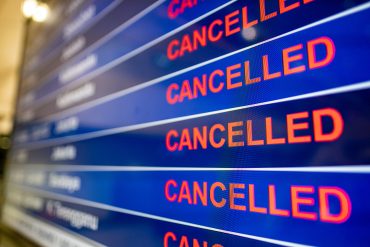
Ransomware Attack Disrupts Major Airline's Global Flight Operations
5 minute read

Global Airline Operations Face Massive Service Disruption as Hackers Target Critical Scheduling Systems
Three Key Facts
- A major airline confirmed a ransomware attack on Sunday morning that spread rapidly through their scheduling systems, affecting thousands of passengers worldwide
- The cyberattack caused widespread flight delays and cancellations, leaving passengers stranded at airports and forcing alternative travel arrangements
- Security experts have been deployed to investigate the breach and strengthen defenses as the aviation industry faces growing vulnerability to digital threats
Introduction
A major airline battles to restore operations after a devastating ransomware attack crippled its scheduling systems and disrupted flights across the globe. The cyberattack, confirmed early Sunday morning, demonstrates the aviation industry’s increasing exposure to sophisticated digital threats.
According to Google News, airline officials noticed irregularities in their scheduling systems before confirming the malicious breach. Despite immediate efforts to isolate the threat, the attack spread rapidly through critical operational infrastructure.
The incident highlights growing concerns about cybersecurity vulnerabilities within the aviation sector. Industry experts warn that similar attacks could become more frequent as threat actors target essential services.
Key Developments
The ransomware attack began with irregularities detected in the airline’s scheduling systems during early morning hours. Security teams attempted to contain the breach immediately but struggled as the malicious software spread through interconnected operational networks.
Passengers experienced significant disruptions as flight information systems went offline. Many travelers found themselves stranded at airports with limited information about departures and arrivals.
The airline activated emergency protocols and brought in external cybersecurity specialists to assess the damage. Recovery efforts focus on restoring core systems while maintaining safety standards.
Market Impact
Thousands of passengers faced unexpected delays and cancellations, creating logistical challenges across multiple airports. The disruption forced many travelers to seek alternative transportation methods, impacting the broader travel ecosystem.
The attack affects not only the targeted airline but also connecting flights and partner carriers. Airport operations experience cascading effects as gate assignments and crew scheduling face complications.
Industry analysts note that such incidents can have lasting financial implications. Recovery costs, compensation claims, and reputation management represent significant expenses for affected companies.
Strategic Insights
The attack demonstrates how quickly cyber threats can compromise essential aviation infrastructure. Modern airline operations rely heavily on integrated digital systems, creating multiple potential entry points for malicious actors.
Companies across industries are reassessing their cybersecurity investments in response to increasing threats. The focus shifts toward building resilient systems that can withstand and recover from sophisticated attacks.
Organizations prioritize skills-based talent management to address cybersecurity staffing challenges. Training programs and strategic hiring help close critical skill gaps in an increasingly complex threat landscape.
Expert Opinions and Data
Cybersecurity specialists emphasize the need for comprehensive defense strategies that go beyond traditional security measures. The aviation industry’s interconnected nature makes it particularly vulnerable to cascading system failures.
Industry professionals advocate for balanced approaches that combine immediate security improvements with long-term infrastructure investments. Companies must weigh innovation benefits against potential security risks when implementing new technologies.
The incident reinforces calls for stricter cybersecurity regulations within the aviation sector. Experts argue that mandatory security standards could help prevent similar attacks and improve overall industry resilience.
Technology leaders stress the importance of clear business cases for security investments. Organizations need strategic oversight to ensure that cybersecurity spending delivers measurable protection and operational continuity.
Summary
The ransomware attack on a major airline serves as a stark reminder of the aviation industry’s cybersecurity vulnerabilities. The incident affected thousands of passengers and highlighted the need for robust defense systems.
Recovery efforts continue as security experts work to restore normal operations and strengthen defenses. The attack underscores the critical importance of comprehensive cybersecurity strategies in protecting essential transportation infrastructure.
The aviation sector faces mounting pressure to implement stronger security measures while maintaining operational efficiency. This incident will likely influence industry standards and regulatory approaches to cybersecurity in critical infrastructure sectors.





